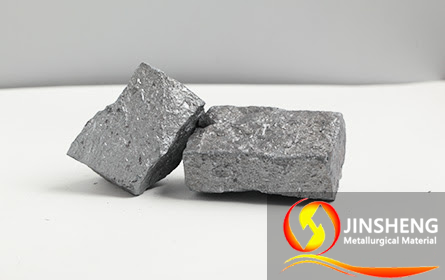What are the uses of ferroalloys?
2025-07-25
Ferroalloys are a class of alloys based on iron that contain high proportions of other elements (such as chromium, manganese, silicon, molybdenum, etc.). They are often referred to as “metallurgical additives.” These special alloys are inextricably linked to the steel industry and are indispensable key materials in modern metal processing.

From a production perspective, iron alloys are primarily manufactured using blast furnaces or electric arc furnaces, and different production methods also determine their application differences. To understand the uses of iron alloys, it is first necessary to clarify their classification and characteristics.
Classification of iron alloys
Classification by production scale and application requirements
Iron alloys are traditionally divided into two major categories, and this classification directly influences their application scenarios:
Bulk ferroalloys: These ferroalloys are characterized by large-scale production and are primarily manufactured using electric arc furnaces. They form the foundation of standard steel production and are exclusively used in steel mills and foundries. Common examples include ferro-chrome, ferro-silicon, ferro-manganese, silicon-manganese alloys, and ferro-nickel.
Special ferroalloys: These ferroalloys are produced in smaller quantities but are increasingly important in industry. Examples include ferro-vanadium, ferro-molybdenum, ferro-tungsten, and ferro-titanium. Their applications extend far beyond traditional steel manufacturing and play a significant role in multiple emerging fields.
Key applications of iron alloys in various industries
The cornerstone of steel production: The core role of iron alloys
Iron alloys play an indispensable role in steel production, primarily in the following aspects:
Deoxidation: Manganese iron and silicon iron are key components for deoxidizing molten steel. They effectively remove excess oxygen from the steel, preventing oxygen-related defects and ensuring the stability of steel quality.
Improving mechanical properties:
Strength and toughness: Manganese iron balances the hardness and toughness of steel, enabling it to withstand heavy loads and high stress, and is widely used in structural components requiring high strength.
Corrosion resistance: Ferrochrome is the “star” in enhancing steel's corrosion resistance. Steel containing ferrochrome can resist rust and corrosion from harsh environments, extending its service life.
Heat Resistance: Silicon iron and tungsten iron enhance steel's heat resistance, making it suitable for equipment in high-temperature environments, such as industrial furnaces and engine components.
Consistency: Iron alloys reduce impurities in steel, ensuring uniform quality in industrial production, which is critical for large-scale manufacturing.
Beyond Basic Steel: Building High-Performance Alloys
In fields such as aerospace, military, and high-end manufacturing, where material performance requirements are extremely high, iron alloys play a critical role:
Nickel iron and molybdenum iron help produce high-strength, high-temperature-resistant alloys for aircraft critical components, ensuring flight safety.
Titanium iron enhances alloy toughness, making it suitable for special machinery that must maintain stable performance under extreme conditions.
Essential for Stainless Steel Production
Stainless steel is widely used due to its excellent performance, and iron alloys are at the core of stainless steel production:
Ferro chromium: This is the key to stainless steel's corrosion resistance. Thanks to ferro chromium, stainless steel can be widely applied in kitchenware, medical devices, and other fields.
Ferro nickel: This enhances the durability and formability of stainless steel, expanding its applications in construction, automotive components, and other fields.
Driving the automotive industry forward
The automotive industry has stringent material requirements, which ferroalloys effectively meet:
Manganese iron is used to manufacture wear-resistant engine components, extending engine lifespan.
Silicon iron aids in producing lightweight yet high-strength chassis components, ensuring vehicle safety while reducing energy consumption.
Special ferroalloys like vanadium iron are applied in high-performance vehicles, enhancing safety performance and overall vehicle performance.
Special iron alloys: expanding into other industries
The application scope of special iron alloys continues to expand, emerging in multiple industries:
Aluminum production: certain special iron alloys improve aluminum's strength and conductivity, enhancing the performance of aluminum products.
Chemical processing: corrosion-resistant alloys made from iron alloys like ferro-chromium are used in reactors and pipelines to withstand the harsh conditions of chemical processing.
**Niche Manufacturing**: Boron iron enhances conductivity in the electronics sector; niobium iron is used in energy infrastructure to improve equipment durability.
Why are iron alloys so important?
The importance of iron alloys is reflected in several aspects:
Reduced production costs: Compared to pure metals, iron alloys have a lower melting point and are cheaper, effectively reducing production costs.
Enhancing metal stability: Some pure metals are unstable and prone to oxidation. Forming alloys with iron can prevent this, thereby reducing refining costs.
Expanding material capabilities: Iron alloys impart superior properties to metals, from enhanced strength to improved corrosion resistance, significantly expanding the application scope of metals.
From everyday steel products to cutting-edge high-tech equipment, iron alloys play an irreplaceable role and are a crucial pillar of modern industrial development.
Conclusion
Iron alloys, with their diverse properties and wide-ranging applications, hold a significant position across various industries. As technology continues to advance, the importance of iron alloys in sustainable development and high-tech manufacturing will further increase, continuing to provide robust material support for industrial innovation.







